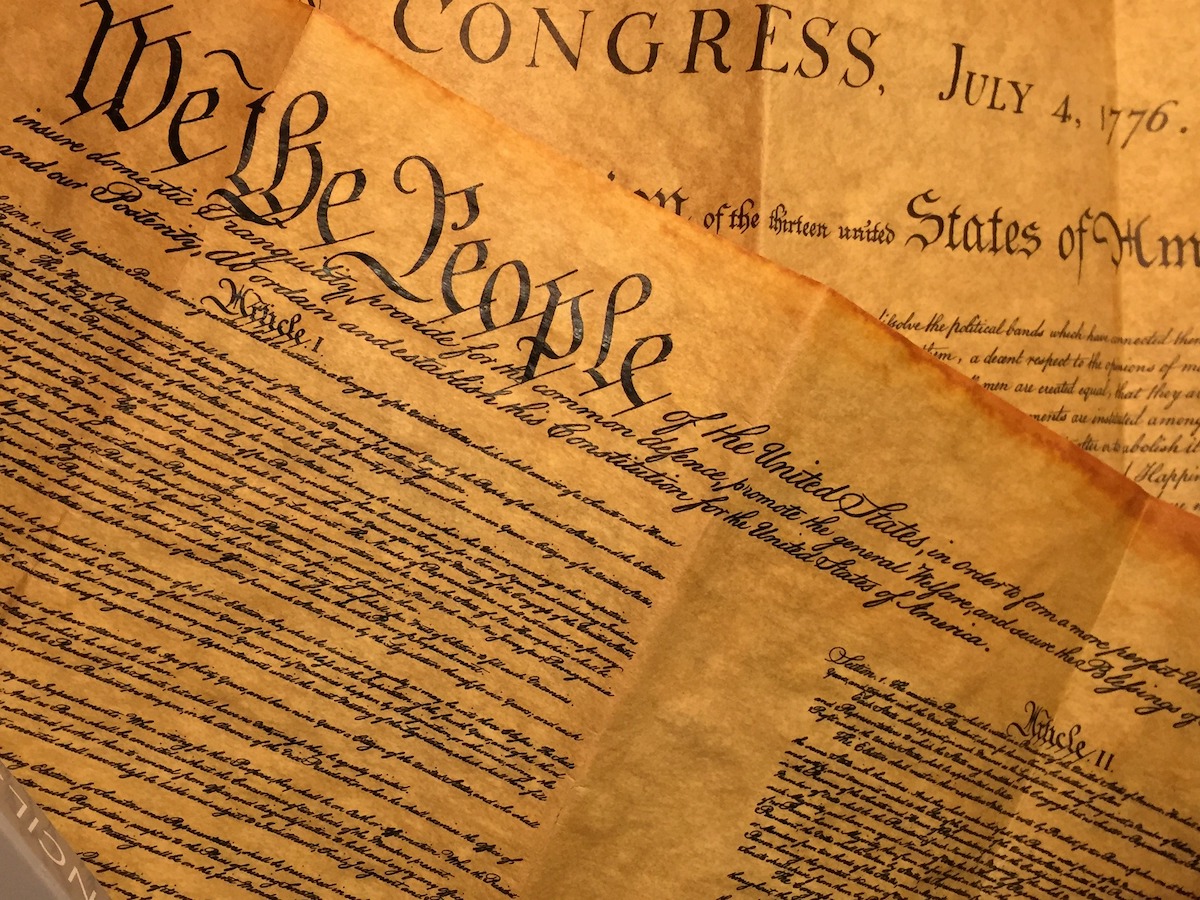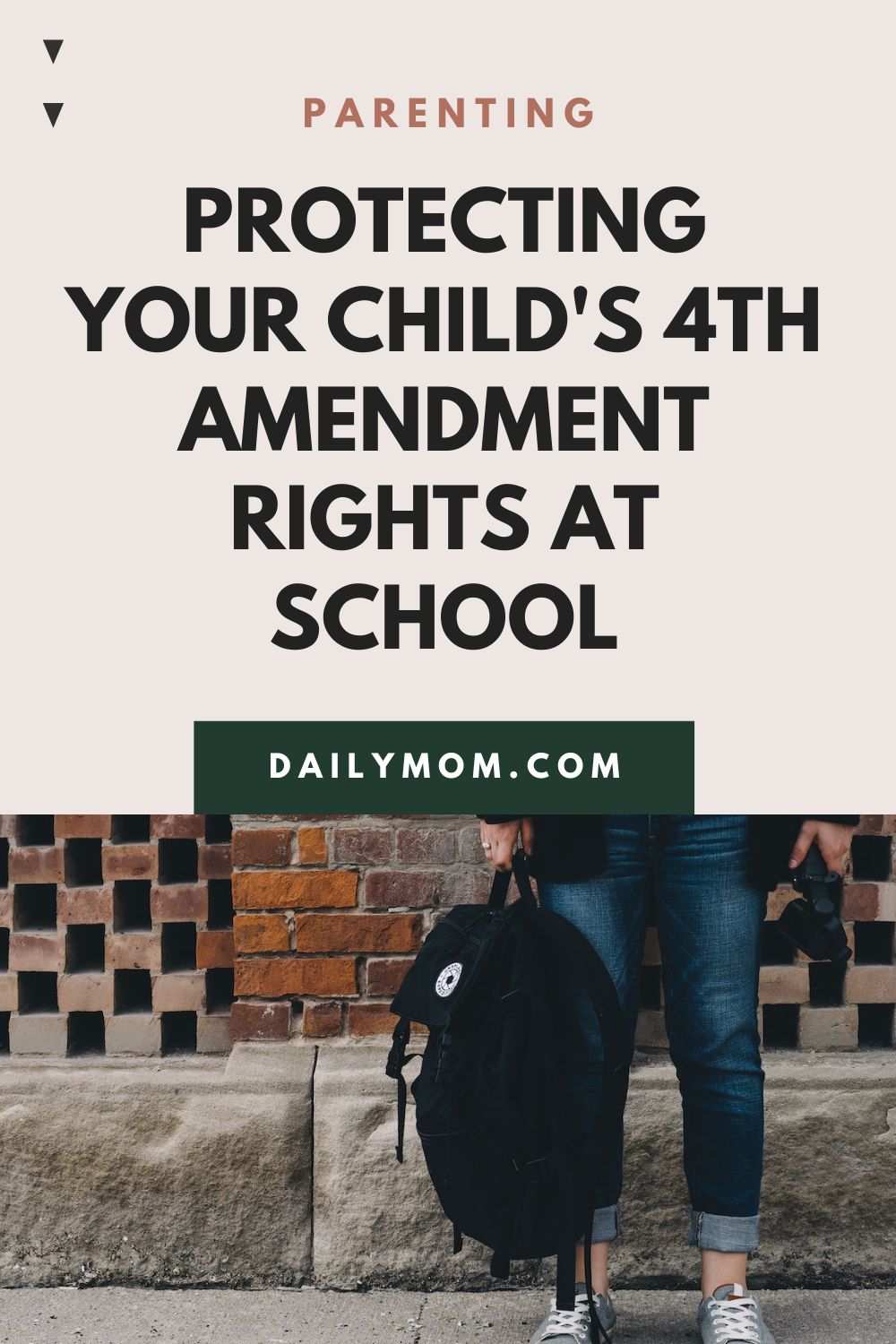In the United States, the Fourth Amendment is a fundamental right that grants protection from unreasonable search and seizure. As a parent, it’s important to understand how this right applies to your child’s rights at school. Unreasonable search and seizure is an important part of the Fourth Amendment. It provides protection from government intrusion into an individual’s private life. This protection extends to students in schools and grants them certain rights when it comes to searches by school administrators.
Understanding these rights is important for parents and students alike, as it helps ensure that the student’s privacy is protected. It’s important to know that the Fourth Amendment does not grant students full protection from searches and seizures. Certain conditions must be met for a school administrator to be allowed to search a student or their belongings. For example, there must be reasonable suspicion that the student has violated school rules or is involved in illegal activity in order for a search to be allowed.
Additionally, school administrators are generally only allowed to search a student’s personal belongings if they have permission from the student or their parent. Here, we will discuss the Fourth Amendment, unreasonable search and seizure, and how to protect your child’s rights in school. We will also provide some tips on what to do if your child feels their Fourth Amendment rights have been violated.
Constitutional Protections of the Fourth Amendment
The Fourth Amendment of the United States Constitution is an important part of our legal system. It protects citizens from unreasonable search and seizure and is especially important for protecting the rights of children in school. With the rise of technology, it has become increasingly important to understand the constitutional protections of the Fourth Amendment and how they apply to students.
When it comes to schools, the Fourth Amendment protects students from unreasonable searches and seizures from school officials. Generally, school officials may search a student or their belongings if there is reasonable suspicion that the student possesses or has committed a crime or has violated school rules. However, if the search is conducted without reasonable suspicion, it is considered an unreasonable search and seizure and is not allowed under the Fourth Amendment.
In addition to protecting students from unreasonable search and seizure, the Fourth Amendment also protects students’ right to privacy. This means that school officials may not access a student’s private communications, such as emails or text messages, without a valid reason and may not monitor students’ online activity without their permission.
Read More: Why I Fear for Our Children after #metoo

Unreasonable Searches Within the School Setting
In a school setting, the U.S. Supreme Court has held that students have a lower expectation of privacy than adults, but they still have Fourth Amendment protections. When it comes to unreasonable searches and seizures of students, school administrators must demonstrate that the search was reasonable in scope and necessary to protect the safety and welfare of other students or staff.
For example, a school administrator may be able to conduct a search of a student’s backpack if there is reasonable suspicion that the student is carrying drugs or weapons. However, the administrator must be able to articulate a valid reason for the search and explain why it was necessary. The search must also be limited to items that are relevant to the suspicion, and the administrator must refrain from searching any items that are not related to the suspicion.
In some cases, a search may be conducted if a student voluntarily consents to it. However, the student must be informed of their right to refuse the search, and any consent must be given voluntarily and without coercion. It is important to note that students in many states have the right to refuse consent to a search without fear of disciplinary action.
As a mother and criminal defense attorney, it is critical that you teach your children to be aware of their Fourth Amendment rights in the school setting. Just as you would teach them any other safety precaution. Parents should inform their children of their right to refuse a search without fear of disciplinary action because any violation of their rights can lead to long-term consequences for the future.

Preparing Your Child for Unexpected Searches
There are a few basic common sense steps that parents should take in order to protect their child’s rights and prepare them for the possibility of an unexpected search at school.
- Explain to your child that the school must have a reasonable suspicion that the student is involved in a crime before they can search them.
- It’s also important that parents communicate with their children and make sure they know their rights and how to respond if they’re asked to submit to a search. This doesn’t necessarily mean that they should refuse to be searched, but they should be aware of their rights and how to best protect them in the event of a search.
- Ensure that their child’s belongings are labeled with their names. This will help to ensure that their child’s property is not mistakenly seized or searched. Additionally, it’s important that parents make sure their child’s belongings are secure, as any items left unlocked may be considered fair game for a search.
- Be aware of their school’s policies and procedures related to unreasonable search and seizure. Understanding the school’s policy will help parents to know their child’s rights and the steps they can take to protect them.
- Discuss with your child about the consequences of any actions that could lead to a search. This could include discussing the dangers of carrying prohibited items in school, such as drugs and alcohol, or anything that could be misconstrued as a weapon.
Read More: Teaching Our Children Bodily Autonomy Must Be A Steady Priority

What to Do if a Search Violates Your Child’s Rights
Unfortunately, there have been cases where students’ rights have been violated, so it is important to know what to do if this happens to your child.
- You may want to speak to an attorney about your legal options. An attorney can evaluate the situation and help you decide how to proceed. If a search does violate your child’s rights, an attorney can help you figure out the best course of action to take.
- If your child’s Fourth Amendment rights have been violated by an unreasonable search, it is important to take legal action. Depending on the situation, it is possible to file a lawsuit against the school district or law enforcement agency responsible for the search. You can also seek damages if the search caused physical or emotional harm to your child.
- Another option is to file a complaint with the Department of Education’s Office of Civil Rights or the Department of Justice’s Civil Rights Division. Depending on the situation, they may be able to investigate the matter and issue a punishment to the school or law enforcement agency if they find that the search was indeed unconstitutional.
- Document the incident. Take notes on the details of the search, and make sure to get contact information from anyone involved. Additionally, if there were witnesses, make sure to get their contact information as well.
Finally, be sure to talk to your child about the incident. Depending on their age, you may want to discuss the 4th and 5th Amendments (the right to an attorney) with them and explain why it is important. It is also important to check in with them to make sure they are doing okay emotionally.
Read More: Why the Medical Community is Failing Us with Their “Standard of Care”

Knowledge is Power
The Fourth Amendment right is a crucial protection that extends to students in the school setting. While schools have a responsibility to maintain a safe and orderly environment, it is essential to balance those interests with the individual privacy rights of students. The Supreme Court’s rulings have established that students do not shed their constitutional rights at the schoolhouse gate, and this includes the right to be free from unreasonable searches and seizures.
By recognizing and upholding the Fourth Amendment rights of students, we promote the principles of justice, fairness, and personal autonomy. Students deserve to feel secure in their person and belongings while attending school, fostering an environment that encourages learning, personal growth, and the development of critical thinking skills.
Nevertheless, it is important to acknowledge that the application of the Fourth Amendment in schools requires a delicate balance. School administrators must have the ability to address safety concerns and protect the well-being of the entire student body. Reasonable suspicion and proper procedures should guide the search and seizure practices in schools, ensuring that they are based on legitimate concerns and conducted with the utmost respect for students’ dignity and privacy.
WANT TO READ MORE?
5 Practical Strategies for Achieving Academic Goals Through Another Tough School Year
CONNECT WITH DAILY MOM
💖 NEWSLETTER: DAILY READS IN YOUR INBOX 💖
Sign up to receive our picks for the best things to do, see and buy so you can relax and focus on more important tasks! Let us help you be the best version of yourself you can be!
BE SOCIAL WITH US
📌 LOVE IT? PIN IT!📌










































